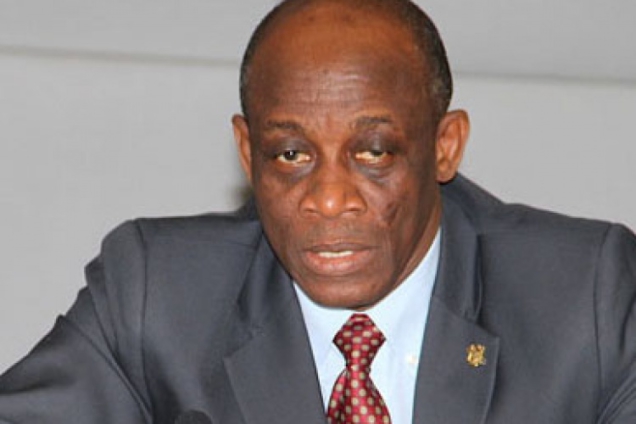Former Finance Minister, Seth Terkper, has reiterated his advice to government not to engage in what appears to be another "fiscal offset" in the 2023 budget, similar to what occurred in the government's 2017 budget.
In this context, Mr Terkper has called on government to disclose its plan for dealing with a large¢ 77 billion pipeline of arrears and contracts in the 2021 Budget Performance Report.
He noted that a similar plan was used to deal with the "single spine" wage arrears in 2020.
He has argued that given that budget overruns are at the core of most debt challenges, transparency and accountability in government finances are crucial for securing an IMF programme.
Moreover, they are also needed for sustainable economic growth and development.
Mr Terkper has argued that the treatment of the banking and energy sector bailout costs as memoranda items, rather than adding them to the country's deficit and public debt stock, create a false impression of fiscal consolidation.
The former Minister stated that this practice by government resulted in the rapid financial market rating downgrades of the country's sovereign bonds and eventual debt default, with the deficit revised upwards to 7% and 7.2% for 2018 and 2019 respectively when the IMF and ratings agencies adjusted Ghana’s fiscal deficit and public debt figures.
Mr Terkper recalled that in 2017, the incoming Akufo-Addo administration accused the John Mahama administration of overlooking arrears of about GH¢7 billion.
However, only about GH¢2 billion was carried forward to the 2017 fiscal year after an apparent offset of GHS 5bn against total expenditures.
At the time, Mr Terkper opposed the move in various articles and interviews.
In a similar move, Mr Terkper notes that the 2023 budget shows another apparent offset of GHS 22bn that also appears to reduce the deficit from about GH¢60 billion to approximately GH¢38 billion.
As with the 2.3% reduction in the budget or fiscal deficit in 2017, the repetition of the fiscal move results in a "paper" reduction of 3.7% of GDP.
The former minister has warned that this practice by government creates a false impression of fiscal prudence, which is unsustainable in the long term.
He has argued that such moves lead to a lack of transparency and accountability in government finances, which can lead to financial instability and economic turmoil.
Mr Terkper's concerns reflect a broader need for transparency and accountability in government finances in Ghana.
The government must address these concerns to build trust with its citizens, investors, and international partners.
Failure to do so could lead to further economic instability and harm the country's long-term economic prospects.
Latest Stories
-
George Twum-Barimah-Adu pledges inclusive cabinet with Minority and Majority leaders
9 mins -
Labourer jailed 5 years for inflicting cutlass wounds on businessman
10 mins -
Parliament urged to fast-track passage of Road Traffic Amendment Bill
10 mins -
Mr Daniel Kofi Asante aka Electrician
11 mins -
Minerals Commission, Solidaridad unveils forum to tackle child labour in mining sector
16 mins -
Election 2024: Engagement with security services productive – NDC
17 mins -
‘Let’s work together to improve sanitation, promote health outcome’ – Sector Minister urges
18 mins -
Ellembelle MP cuts sod for six-unit classroom block at Nkroful Agric SHS
22 mins -
‘I’ll beat the hell out of you if you misbehave on December 7’ – Achiase Commanding Officer
24 mins -
AFPNC leads the charge on World Prematurity Day 2024
30 mins -
Court remands unemployed man over theft of ECG property
36 mins -
Election security rests solely with the police – Central Regional Police Command
38 mins -
NCCE engages political youth activists at Kumbungu on tolerance
39 mins -
‘In Mahama’s era students lacked chalk, but are now receiving tablets’ – Bawumia
48 mins -
Project commissioning not a ploy to attract votes – Oppong Nkrumah
50 mins

